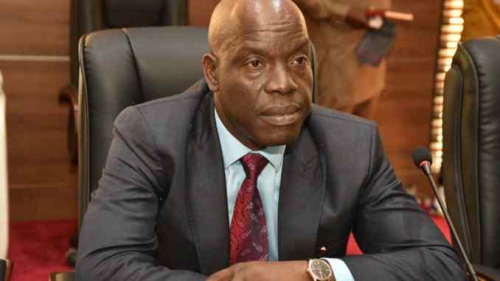OIL & GAS SECTOR INSIGHT 31/05/2022
Komolafe: Nigeria Lost N434bn to Crude Oil Theft in Q1

The Chief Executive Officer of the Nigerian Upstream Petroleum Regulatory Commission (NUPRC), Mr. Gbenga Komolafe, has said Nigeria lost about N434 billion (about $1 billion) to oil theft between January and March this year.
The huge amount lost to oil theft was disclosed same day the Minister of State, Petroleum Resources, Mr. Timipre Sylva, said international oil companies (IOCs) are leaving Nigeria because the environment was becoming too volatile for their operations.
Also, Africa’s richest man and President of the Dangote Group, Alhaji Aliko Dagote has advised the federal government to introduce a single-digit tax regime to encourage investments in the downstream and midstream sectors of the Nigerian oil and gas industry.
Komolafe was speaking at the Iwereland Petroleum Communities Summit on the implementation of the Host Communities’ Development Trust in oil producing Itsekiri communities under the Petroleum Industry Act (PIA) 2021 hosted by the Olu of Warri, Ogiame Atuwatse III.
The upstream regulator disclosed that only about 1.35 million barrels or 71 per cent of the 1.9 million barrels that Nigeria produces, all things being equal, gets to the crude oil export terminals due to massive theft and pipeline vandalism.
Stressing that the challenge was hindering Nigeria from meeting her crude oil output capacity, Komolafe said out of about 141 million barrels of crude oil the country produced during the period, about nine million barrels were lost to crude oil theft.
Given the prevailing price of an average of about $116 per barrel at the international crude oil market, and an official exchange rate of N415/$, the loss sums up to about N434 billion.
“While the commission is prioritising efforts towards increasing oil and gas production and ensuring maximum economic recovery in Nigeria through the optimisation of oil and gas value chain, there have been challenges limiting the country from making the much-desired progress,” Komolafe lamented.
Nigeria has under-produced for months now and it had been unable to meet the Organisation of Petroleum Exporting Countries (OPEC) quota. It also means that the country has not able to reap the full benefits of the rising oil prices.
The NUPRC boss lamented that the loss to oil theft could have been available for development of social projects like hospitals, schools, roads, provision of electricity and potable water, to improve the quality of life of the people.
Beyond the loss in revenue, he said the sabotage of oil and gas facilities had resulted in additional remediation cost to the government as well as environmental degradation from oil spills.
In addition, he listed soil and water pollution, threat to human life, source of livelihood, wildlife and marine life (fishes) and crops as some of the impacts of the increasing theft of Nigeria’s oil.
These losses, he said, underscored the need for the government to optimise oil and gas resources development and production through the passage to law of the Petroleum Industry Bill (PIB) after more than 20 years.
Komolafe said the enactment of the PIA opened new opportunities in the country’s oil and gas industry, with extensive provisions to foster sustainable prosperity of host communities and enhance peaceful and harmonious co-existence of oil companies with their host communities.
Section 235 of the Act, he said, specifically provides for the incorporation of Host Communities Development Trust (HCDT) by the Settlors (the oil and gas companies) for the benefit of the host communities.
He noted that although the responsibility to set up HCDT and appoint the Board of Trustees was vested in the companies in consultation with the host communities, Section 247 of the Act requires the Board of Trustees (BoT) to set up a management committee to handle the general administration of the fund.
In addition, he noted that the management committee was required to in turn, set up an advisory committee to advise on activities as well as monitor and report progress of projects in the community to the body.
“The law provides that the host communities should be represented in the Board of Trustees, Management Committee and Advisory Committee, while Section 235(6) empowers the NUPRC to make regulations on the administration, guide and safeguard the utilisation of the trust fund and have the oversight responsibility for ensuring that the projects proposed by the Board of Trustees are implemented,” he noted.
According to him, the commission has concluded arrangements to ensure the regulations guiding the implementation of the host community development fund under the PIA 2021 comes into effect before the end of June 2022.
Komolafe said this would signal the commencement of a seamless implementation of the host community development fund for the benefit of oil producing communities.
He pledged that the commission would focus on working with the host communities and other stakeholders to ensure investments in the oil and gas sector are adequately protected, while ensuring the safety and sustainability of the environment.
The chief executive said the commission was committed to ensuring that the three per cent deduction required from the Settlor’s annual operating expenditure (OPEX) was not short-changed and that funds were remitted in good time.
He added: “We shall also ensure that projects and programmes proposed by the HCDT are implemented as well as ensure fair and adequate compensation for damaged environment and apply sanctions where necessary on defaulters.”



